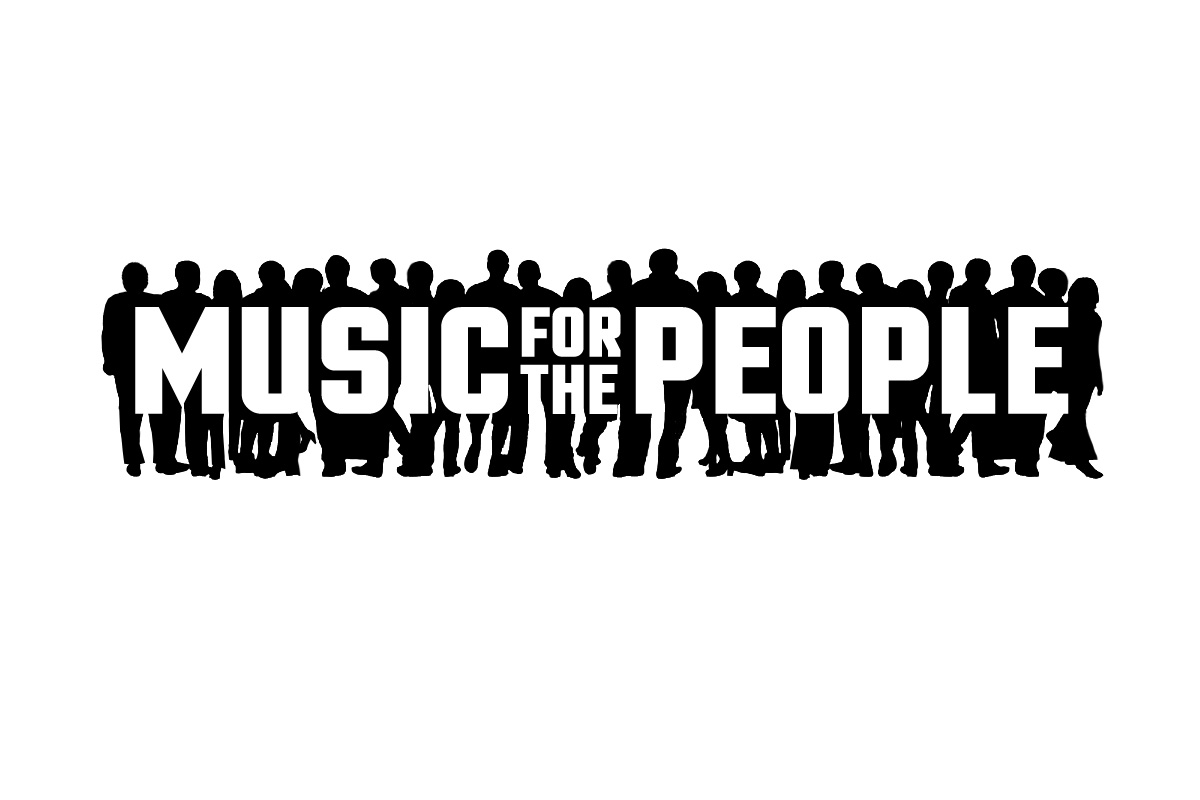Why “Music for the People”?
Opinions on where classical music is and where it’s going abound and I’ve been mulling these questions myself. We’ve all heard how we’re in trouble and are no longer relevant; how the lack of music education in schools has hurt our ability to connect to new audiences, and how a sea of gray heads in the audience at most concerts spells doom for our future. Many wish for our potential audience to understand us and what we play better, hoping that that would solve most problems. There are all kinds of strong opinions; most of them are alarmist and not many are hopeful.
Rather than judge if we’re in good or bad shape, I will add a few general observations about what I wish was different. I have been to countless concerts over the years, and when I think of what has been lacking the most, one thing immediately jumps to mind – excitement. Too many classical concerts are not particularly exciting. The overpolishing of the same standard gems over and over does not help, but primarily, a lack of a visceral connection to the music is an issue. Many classical music experiences simply do not punch you in the gut; a music conservatory can train you to do many things well, but intangibles such as exhilaration are not high on the list of priorities. Now compare that to rock concerts. Even if you dislike the music, there is always an attempt from the band to create excitement, and when it works, you immediately see how much it means to the audience.
Another problem I see is overreliance on (and excessive worship and fear of) tradition, on “how we do things”. Anyone who has studied the evolution of systems will tell you that systems evolve but include a lot of eventual dead ends, most of which you would discard if you were starting from naught. In other words, we have a way of presenting, playing and thinking about music that we have arrived at after centuries of practice, but are there dead ends in there, and if so, should we discard them? Is it necessary to explain classical music with musicological jargon? Do we need specialized ensembles for specialized repertoire, and if so, what does that mean in practice? Why only applaud at specific times? Why have two-hour concerts with a 20-minute intermission?
If classical music appeared out of nowhere, and we learned about it from scratch, think of the qualities you would find the most appealing. To me, its combination of intellectual depth and emotional beauty is something unique. Its connection to the world it comes from, the way it highlights the culture of its time is endlessly fascinating and varied. And, the best classical music is exciting and moving, capturing the highs and lows of the human experience unlike any other. Could we present these strengths in a way that even someone who has never had much contact with it could immediately feel? I believe that we can, and that this is our way forward. Rather than educating audiences to fit our way of doing things and lamenting what should be but isn’t, we must figure out what works for your average millennial or blue-collar worker, while ensuring our performances always have that quality of visceral excitement to move hearts.
I have founded Music for the People to try to find solutions. I believe in our music as a force of beauty in the world. It is something that can be enjoyed by everybody who sits and listens with an open heart. I want to get away from tradition, which in our field is especially stifling, and I want to spread the gospel of music based on its own merits. It’s certainly good to explain and offer a deeper understanding to those who want it, but a true work of art speaks immediately, and we should trust that what we play does precisely that. No more specialists to describe what we do. We, the musicians, must speak directly to our listeners about why we care and love this music, and what it means in our hearts. Creating personal connections is key.
Classical music is for everyone who cares. I want to play it in red states, in blue states, for the poor, for the rich, for the immigrants and emigrants. I want to build bridges with it, which is something we desperately need in these polarizing and difficult times. I want to use classical music as a way to connect people, as an unexpected common denominator of the human experience. That’s why I have devoted countless hours to start this group, so we can do things differently. So we can have a nimble, flexible platform with which to change what our music means in modern times. Why not try shorter programs without intermission? Why not play individual movements of works? Why not put Zappa, J.S. Bach, Andy Akiho and Fauré on the same program? We should not be afraid of doing things differently, and Music for the People is for that.
I hope you can join me on this journey. Click here for more info and to make a tax-deductible donation to help with our concerts.
